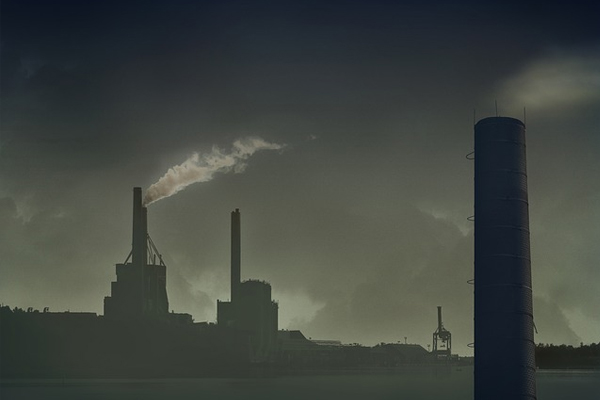Global carbon dioxide emissions flatlined in 2014

Nearly half a million people die each year from complications related to China’s air pollution. (Credit: BriYYZ/CC BY-SA 2.0)
Global carbon dioxide emissions went flat in 2014, according to The Guardian. The largest contributor to the flatline was a weak Chinese economy that looks to have canceled out emissions from strong economic growth elsewhere in the world.
Still, officials with the International Energy Agency say that efforts to reduce emissions in China — like using more renewable energy sources like solar, wind and hydropower — may also have contributed to the reduction.
“This is both a very welcome surprise and a significant one,” said Fatih Birol, the incoming executive director of the IEA, in a statement. “It provides much-needed momentum to negotiators preparing to forge a global climate deal in Paris in December.”
For the first time, Birol says, it appears that greenhouse gas emissions are decoupling from economic growth. But the outgoing director of the agency, Maria van der Hoeven, cautions against taking the news too positively, which she says could lead to a slowdown in work to continue reducing emissions.
“The latest data on emissions are indeed encouraging, but this is no time for complacency, and certainly not the time to use this positive news as an excuse to stall further action,” said van der Hoeven.

Carbon emissions stalled in 2014. (Credit: Gilles Tarabiscuité)
The one-year pause is certainly no large dataset that policymakers can point toward to prove that their efforts have worked. And experts worry that the economic changes of 2014, particularly the drop in oil prices, may contribute to emissions increases through enhanced economic growth in the future.
The emissions slowdown is in line with calls by the Intergovernmental Panel on Climate Change that have asked world governments to contain emissions to a peak in the year 2020. That is the year that current governmental agreements on emissions end.
“These figures show that green growth is achievable not just for Britain but for the world,” said Ed Davey, energy and climate secretary for the United Kingdom, to The Guardian. “However we cannot be complacent – we need to dramatically cut emissions, not just stop their growth. Getting a new climate deal is absolutely vital, and the year ahead is going to be of critical importance.”
Top image:Nearly half a million people die each year from complications related to China’s air pollution. (Credit: BriYYZ/CC BY-SA 2.0)





0 comments